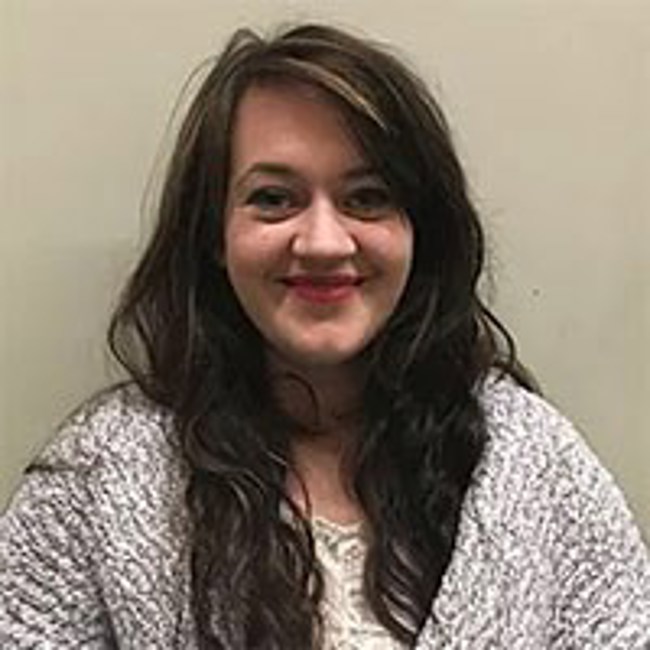novosound
Novosound ltd. is an award-winning ultrasonic imaging company which spun out of UWS in 2018. Novosound utilises ground-breaking thin film technology to create fully flexible, high resolution ultrasound sensors. The KTP was founded upon the in-house thin film manufacturing processes to enhance material performance.
Q&A: Mhairi Rogan - BSc (Hons) Physics
What attracted you to the role of KTP Associate?
I embraced the idea of professionally working across both the industrial and academic sectors, enabling me to gain experience. The ability to train and register for a higher degree was extremely attractive, and I was able to register for a Masters of Research which I am completing post-KTP.
To what extent has your understanding of the role been realised?
Over the KTP period, I gained experience of working in both industrial and academic environments. I was able to publish work and present at conferences, also attending industrial meetings and gaining valuable knowledge from the Novosound CEO, Lead Physicist, Head of Operations, and many more.
Had you heard of Knowledge Transfer Partnerships before applying?
Yes, I was already employed by Novosound when the KTP was advertised.
What have been the most positive aspects of your role?
Over the course of the KTP, I had the opportunity to travel internationally to participate in conferences and projects. I successfully applied to present at two conferences which directly related to my research area and attended the KTP conference in Belfast. In preparation for presenting, I used my PDP budget to have one-to-one public speaking coaching. The Ashorne Hill training allowed me to meet fellow KTPs and create a support network of people who were all in the same role. The UWS KTP centre provided guidance and I was lucky enough to gain employment from my host organisation at the end of the project.
What have been the biggest challenges?
The most difficult challenge faced during my project was the COVID pandemic. My project was experimentally based and, due to the nationwide lockdowns, I was unable to get access to the university equipment which was being used. Moving from lab-based work to home-based was difficult, but I believe I managed as well as I could in the circumstances. Approval was given to extend the project due to excess in the budget which allowed us to complete as much as we could. Other factors, such as equipment failure, were difficult to avoid but new equipment was purchased.
Describe a typical day as a KTP Associate
The day-to-day as a KTP associate can vary quite significantly. Some days I was inside a vacuum chamber cleaning it out and fixing parts and others I was in New York having high-level meetings representing the company. Other days could involve literature searches or designing and conducting experiments based on analytical results. Another facet of my role required liaising with suppliers and taking part in internal company communication meetings. I also trained MSc and PhD students on equipment and gave a guest lecture the Thin Films MSc cohort. The variety in the daily work is one of the best parts of the role.
Have there been any unexpected experiences or outcomes of your role?
Since the completion of my KTP I have been empowered to make grant submission for a Future Leaders Fellowship with Innovate U.K. This is a substantial grant, and the company have supported me during every stage. The experience of the KTP has underpinned the submission and has enabled me to apply without a PhD.
What training and development have you benefited from as a result of working as a KTP Associate?
The Ashorne Hill management training was an extremely useful and interesting outcome of the role. I also used my PDP budget on one-to-one personal coaching for public speaking which really helped me as I had limited experience prior to undertaking this training course. The PDP budget was also used for some training in Python, and I attended three conferences using it. Over the course of the project, I also had the opportunity to sit in on various meetings for the company and developed my experience in an industrial setting.
How would you describe the unique experience of working as a KTP Associate?
Working as a KTP Associate allowed me to gain both academic knowledge and related industrial skills which positioned me positively for my future career in industry. The ability to register for a higher degree, and the use of the training budget, have upskilled my CV whilst the day-to-day learning has increased my confidence in my chosen career path. Benefitting from the support of the University and the company mean that various areas of expertise are available to the Associate and being responsible for the project plan and finances give experience of project management and leadership. As a recent graduate when I began my post, I had little preparation for an industrial role and the KTP helped to bridge that gap, enhancing academic knowledge and creating fundamental industrial skills. One of the best things about being a KTP Associate is the support that you have throughout the project, not just from the host organisation and the University, but also from the KTP Advisor and centre, who invest the time you need helping with any issues you come up against.
Would you recommend a KTP Associate role to other graduates?
I would highly recommend a KTP role for anyone who wants to follow an industrial career path, while still having an academic link. This allows you to work at becoming an established researcher in your chosen field whilst still gaining the industrial skills required to have a really strong foundation for your career. It is also an excellent insight into both the worlds of academia and industry, so if someone is unsure of what route they would like to go down they can have experience of both.

Which 3 words best describe your experience of being a KTP Associate?
-
Engaging
-
Challenging
-
Learning